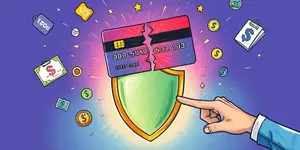
Credit cards have evolved beyond simple payment tools into sophisticated reward engines. With the right approach, you can transform routine spending into valuable perks—if you know where to look.
In 2025, rewards cards dominate the U.S. market, accounting for 91% of card spending. Yet many cardholders leave bonuses unclaimed and fail to leverage underused benefits.
At its core, a credit card perk is any benefit above the statement balance reduction that adds value to your financial life. Perks range from straightforward cash back to travel insurance and airport lounge access.
Understanding the difference between cash back, points, and non-monetary perks is key. Not all perks carry the same weight or flexibility, so aligning them with your lifestyle ensures you maximize your earnings potential.
Even seasoned rewards enthusiasts often overlook these hidden or underutilized benefits:
Research indicates about $500 million in rewards are forfeited annually due to inactivity or account closures. By simply activating quarterly categories or tracking sign-up bonuses, you can reclaim a significant portion of that lost value.
Issuers often deploy limited-time promotions to spark spending in specific categories. For example, some cards offer triple points on holiday shopping from November to December, or rotating 5% cash back categories that change quarterly.
Staying informed about these offers and registering on time can boost your earnings from 1.6 cents per dollar to more than 3 cents per dollar spent. It takes just a few minutes each quarter to ensure you’re enrolled in every available bonus.
With $41.1 billion in rewards earned in 2022, cash back remains the most popular payout method. However, points and miles offer travel flexibility and partner transfer opportunities.
Consider these factors when choosing your rewards currency:
Beyond rewards, many cards provide valuable insurance benefits. These include:
These perks often save hundreds of dollars per incident. Yet, fewer than half of cardholders ever file a claim. Familiarize yourself with policy terms to leverage these safeguards when travel plans go awry.
High interest rates can swallow the gains you earn. With the average APR topping 21%, carrying a balance for just one month on a $1,000 purchase costs you $17.50 in interest—far exceeding typical rewards value.
Always aim to pay your statement in full. This simple habit allows you to enjoy perks without falling into the cycle of debt, ensuring that you’re truly profiting from your rewards rather than paying costly interest charges.
Proposed legislation, such as the Credit Card Competition Act, aims to lower merchant swipe fees. While reduced fees could mean cheaper goods for consumers, they may also lead issuers to scale back rewards programs.
Maintaining awareness of policy changes empowers you to anticipate shifts in the rewards landscape and adapt your strategy accordingly. Flexibility is your ally in a competitive market.
Putting theory into practice involves these actionable steps:
By treating your credit card as more than a payment method—as a powerful tool—you can unlock a world of rewards and protections that pay dividends year after year. Remember, rewards are as much about mindset as they are about spending habits. Embrace the behavioral currency of rewards to elevate everyday expenses into extraordinary experiences.
Your financial journey deserves more than mundane transactions. Swipe smart, stay informed, and watch the hidden perks transform the way you live, travel, and shop.
References













